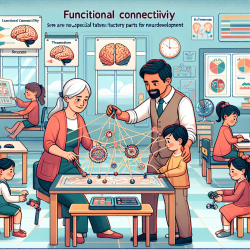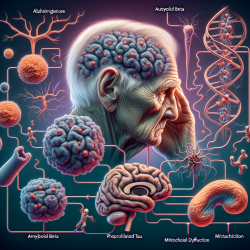The treatment of adolescent sexual offenders (ASO) is a complex and sensitive area that requires specialized approaches to effectively reduce recidivism. The study titled "Recidivism Rates of Treated, Non-Treated and Dropout Adolescent Who Have Sexually Offended: a Non-Randomized Study" offers valuable insights into the effectiveness of cognitive-behavioral therapy (CBT) in addressing this issue. This blog post explores the key findings of the study and provides guidance for practitioners seeking to enhance their skills and understanding in treating ASOs.
The Role of Cognitive-Behavioral Therapy
Cognitive-behavioral therapy is widely recognized as a first-line treatment for ASOs. It focuses on teaching adolescents to identify and modify thoughts and feelings that contribute to abusive sexual behavior. The therapy aims to develop emotional and behavioral self-regulation skills, alongside social skills, accountability for abusive behaviors, empathy development, cognitive restructuring, and reduction of deviant sexual interests.
The study found that adolescents who completed CBT exhibited a significantly lower rate of violent recidivism compared to those who did not complete or receive treatment. This highlights the importance of specialized treatment programs that address not only sexual aggression but also general violence-related factors.
Key Findings and Implications for Practitioners
- Treatment Completion Reduces Recidivism: Adolescents who completed CBT had a recidivism rate for violence almost half that of those who did not complete or receive treatment (16.1% vs. 30.7%). This underscores the importance of ensuring that adolescents complete their treatment programs.
- No Significant Effect of Victim Typologies: The study found no significant impact of victim age or relationship typologies on treatment completion or recidivism rates. This suggests that practitioners should focus on individualized treatment plans rather than relying solely on typological classifications.
- The Importance of Family Involvement: Family support plays a crucial role in reducing recidivism and promoting better outcomes. Practitioners should engage families in the therapeutic process to enhance treatment effectiveness.
Encouraging Further Research
The study emphasizes the need for ongoing research to refine treatment approaches for ASOs. Practitioners are encouraged to engage with current research findings and contribute to the development of evidence-based practices. Understanding the nuances of ASO behavior and treatment response can lead to more effective interventions and ultimately reduce recidivism rates.
The findings also highlight areas where further investigation is needed, such as exploring the impact of different treatment modalities, understanding the role of individual risk factors, and evaluating long-term outcomes beyond recidivism rates.
Conclusion
The study provides compelling evidence for the effectiveness of cognitive-behavioral therapy in reducing violent recidivism among adolescent sexual offenders. Practitioners can enhance their skills by integrating these insights into their practice and advocating for comprehensive, individualized treatment plans that involve family support.
To read the original research paper, please follow this link: Recidivism Rates of Treated, Non-Treated and Dropout Adolescent Who Have Sexually Offended: a Non-Randomized Study.










